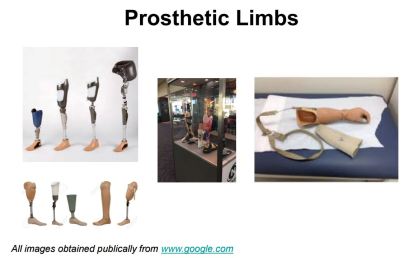FDA Debrief: CDRH Veteran Amputee Device Workshop, October 31, 2016

KEY Concepts
- Use / Assess TPLC (Total Product Life Cycle)
- Engagement to improve patient experience – better understand patient preference and patient input
- Include amputee preference in B/R assessment
DR. VIVEK PINTO: Branch Chief, PMDB
- Non-invasive prosthetic devices are generally Class I Exempt devices
- Must comply with general controls: Components for prosthetic limbs, Assembled systems
- TPLC
- Novel prosthetics – less knowledge about safety and effectiveness : Greater premarket purview
- Customary prosthetics- history of safety and effectiveness – Greater postmarket purview
DR. KIMBERLY KONTSON, OSEL
- Functional Outcome measures
- Patient-centered, Clinically-meaningful test methods
- DARPA haptics, VR platform
Q/As & DISCUSSION TOPICS
- IoT/Interoperability: Data/Specification? Include in label what is / is not compatible
- Differences in classification of ‘similar’ devices: FR publishes reviews, FDA will note to increase transparency
- Patients vs Physician measures of performance: Website for tests used by physicians?
- Lack of readily available information of approves/cleared prosthetics
- Johns Hopkins University Patient Preference methods: Incorporate patient & caregiver voice : Facts vs Values, Measuring choices
- LIM innovations: Optimal Socket design , R&D approach to incorporate user feedback: Improve comfort stds, Understanding patient journey post-amputation, connected tech to prosthetics, moderated interviews
- FDA-CMS considerations upfront
VA Amputation Society (ASoc) Clin perspectives on amputation care
-
- Enhance quality and consistency of amputation care
- Prosthetic dissatisfaction and abandonment
- Tech advances outpaces research
Prosthesis prescription considerations
- Must be based on the Veteran not the available technology
- Prosthetic education and training essential to successful outcomes
- Greater need for highly specialized teams with advanced technology